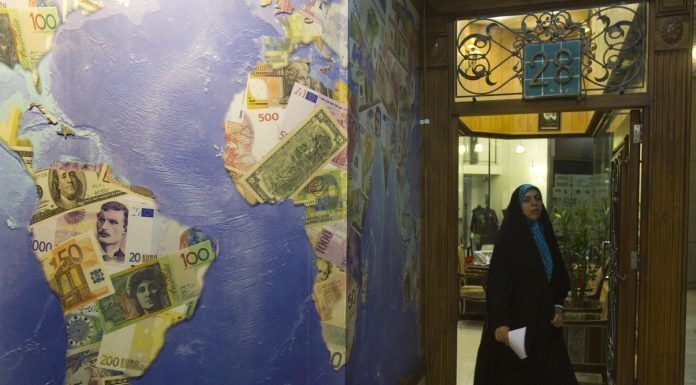The Islamic Republic of Iran’s central bank has postponed plans to launch a single foreign currency exchange market (Forex), citing failure by many currency traders to file the relevant documents by the set deadline, the Iranian Students News Agency (ISNA) reported, citing Central Bank Governor Abdolnaser Hemmati. Some banks have said that they were not ready to join the scheme yet, the report added.
Mr. Hemmati first announced the creation of a single foreign-exchange market in April. The Central Bank has, however, changed the starting date a few times since then.
“Our goal is to create a stable single Forex,” Hemmati said recently. “We cannot operate in a volatile economy. Therefore, we must manage the situation. We will not, therefore, roll out the scheme until we are certain that it can function properly.” He added that the aim was to open by Eid Qorban (or Eid al-Adha, one of two key Islamic holidays).
In the past two years, President Hassan Rouhani’s government has tried to stabilize the Forex exchange by implementing a number of measures, including a plan in 2018 to remove the discrepancy between the exchange rate used by traders and the official rate by setting a single rate of exchange of 42,000 rials to the dollar. That scheme appeared to benefit only those with close ties to the regime, and not the importers of raw material and manufacturers. It also created a volatile domestic market and raised the price of goods significantly.
The first managing director of the single Forex Mahmoud Shekastehband said recently that around 30 currency exchange bureaus had taken part in an experiment involving real-time trades last month. “The online auction will take place between 9 and 10 a.m., followed by the theoretical opening price (TOP). The market will close at 2:30 p.m.,” he said.
Mr. Shekastehband added: “More than 100 currency traders have opened accounts and filed most of the required documents. The market will start its work with the existing traders because it takes a long time to complete all of the required forms.”
According to Hemmati and Shekastehband, the scheme calls for each currency trader to open three separate accounts for the rial, dollar, and euro. The currency exchange bureaus then give the single Forex the authority to withdraw the equivalent of each transaction from their corresponding accounts and deliver the foreign currency to the customers. Under the scheme, people will also be able to get cash from foreign-currency dispensing automatic teller machines (ATMs).
According to the latest reports, 120 currency exchange bureaus and six banks have paid the required fee to join the single Forex. The officials have processed the applications for 65 currency traders and are now testing another 35. The tests involve live real-time transactions of up to $1,000.
[Translated from Persian by Fardine Hamidi]


